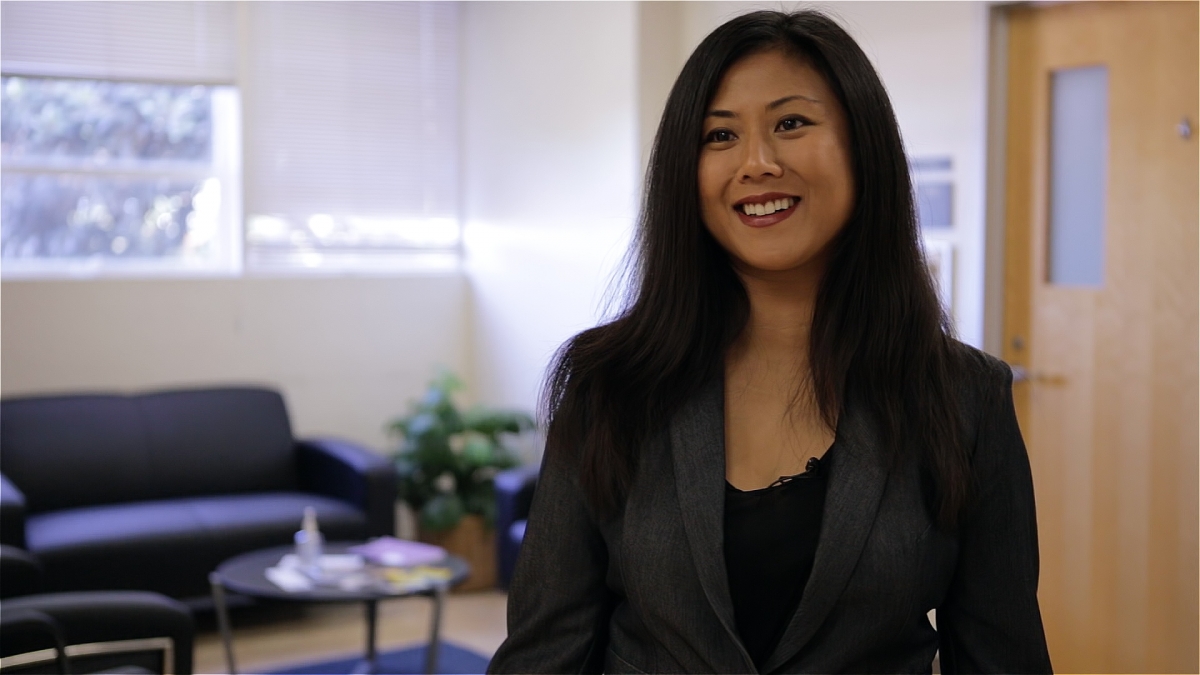Every night, a widow would hear trucks coming into the concentration camp. The trucks would arrive empty, but soon enough, they would be filled with prisoners from the camp. When the morning came, the truck would return empty again. No one talked about it, but they knew what happened next. The prisoners were executed; the widow left to worry she might one day be among the dead.
Every night, she would corral her six children together, showing them the jewels she’d hidden under the floor planks. “This can buy you a cup of rice,” she would say, pointing to a jewel. “This can buy you a stick of fish.” She repeated this ritual with her children every night, filled with anxiety. And every morning that went by without her getting captured, the sunrise would fill her with hope.
This is the story of the mother of Phatana Ith, lecturer at California State University, Long Beach, who survived the Cambodian genocide. Now, Ith, a second generation Cambodian American, is working on project called Out of the Shadows, in which she collects oral histories of female survivors of the Cambodian genocide. Many of the women arrived in the United States four decades ago, having escaped the genocide that killed almost 2 million people in Cambodia.
The Cambodian Genocide took place from 1975 to 1979, during which the Cambodian communist regime known as the Khmer Rouge attempted to transform the country into a classless agrarian society. This genocide was known for its killing fields, where people were ruthlessly killed and buried en masse. Surviving Khmer Rouge leaders have refused to admit guilt for these acts of violence, but in 2013, Cambodia passed legislation that makes denial of the genocide a crime.
“The way I thought of creating an oral archive was really to tell the stories of my family, in particular my mother,” Ith told Hyphen magazine. “I just thought this was a life project of mine. I’d collect the stories of my mother on a tape recorder, so if anything happened to her, my family would have these stories, and I would have these stories to share with my daughter.”
That plan soon evolved into something bigger. While studying for her doctorate degree, Ith wrote a paper on how to conduct interviews with refugee and immigrant communities and pitched a proposal at a conference last year. Soon, she realized she could collect the stories of other survivors and has now been working on this project for about a year.
This project is similar to oral history projects conducted with survivors of genocide, such as those done with Jewish American Holocaust survivors, but distinguishes itself by focusing on female survivors, who often have to suffer not only for themselves but also for their families. What’s more, her methodology focuses on effectively communicating with immigrant and refugee communities.
To do this, she is building relationships with the Cambodian American community in Long Beach, CA. Home to about 20,000 Cambodian Americans, Long Beach is the largest Cambodian American community in the United States. Ith notes that the collectivist values of Cambodian culture has made it important for her to attend community events and get to know people within the community. She also acknowledges that her own Cambodian background, as well as her personal connection to the project, helps.
“Especially coming out of my personal experiences with my mother and being female, it’s important to create a space or contribute to a space where female stories need to be heard,” Ith said. “The experience of war and genocide impacts women in a way that’s very unique from male experiences. This is not to discount men’s experiences as survivors. In genocide, what women stand to bear are almost double the consequences of war and genocide.”

Phathana Ith, lecturer at California State University, Long Beach, who founded the project. (Courtesy of Phatana Ith.)
Being the child of genocide survivors has personally impacted Ith. When people go through traumatic events, such as genocide, it has a ripple effect on the second generation. This is a pattern that has repeated itself with other genocides around the world, such as the Jewish Holocaust, Armenian Genocide and Rwandan Genocide.
According to a study of Cambodian American refugees in Long Beach, the rate of PTSD is over 60 percent. In comparison, the lifetime prevalence of PTSD among adult Americans overall is less than 7 percent. The children of survivors often exhibit similar psychological symptoms as their parents, such as anxiety and depression. What’s more, children often aren’t given an explanation or education about their parents’ trauma.
“The children are unable to defend themselves in terms of the history of what happened. All of that combined impacts the second generation’s emotions and well-being,” said Sara Pol-Lim, former executive director of United Cambodian Community of Long Beach.
Pol-Lim, who is herself a survivor, is currently conducting research on the relationship between intergenerational trauma and academic achievement. “A lot of the second generation say, ‘I heard of this traumatic past and suffering. I hate to see my parents upset when they talk about it. They don’t want to tell me about it,’” Pol-Lim said.
Ith personally has struggled with anxiety and depression, and she felt this was passed down to her through intergenerational trauma. “I found that a lot of walls I was running into as a young person, an adult and a parent — a lot of that was connected to my emotional wellness,” Ith said. “When I set out to study the reasons why I was coming up against a lot of obstacles in my life, it was those stories of my mother that really inspired me and carried me through those hard times.”
When Ith had just given birth to her daughter, she struggled with anxiety and depression, and she often felt like she was unable to raise a child and that she was failing as a mother. But when she told her mother about her feelings of helplessness, her mother told her the story about how she would corral her children every night and show them the jewels under the floor planks.
“It was at that moment that I understood the stories for what they meant to me when I was at my lowest point, and I felt inadequate,” Ith said. “When she told me the story, I thought, she went through all of that, and she made it. She survived it with that ritual for almost four years, so I can make it through this.”
One risk of doing an oral history project is that asking people to tell their stories can be traumatic in itself, as these feelings can be retriggered. Ith realized this when she spoke with her mother, so part of her research involves creating a culturally sensitive methodology, which includes strategies for being sensitive and understanding historical context.
“That’s a memory that she doesn’t revisit often,” Ith said. “I had to learn how to modify my communication with her to be more sensitive about the fact that she’s a genocide survivor as well as my mother. There were aspects of her identity that I needed to negotiate and learn about when I interacted with her — how to modify communication to maintain soul safety.”
Pol-Lim agrees, saying her own experiences as a survivor still impact her today. In the genocide, she lost her father and three brothers.
“Being alive today and coming to a different country in 1983 with no word of English and experiencing culture shock — I was a teenager at the time. It was overwhelming,” Pol-Lim said. “Now having my own offspring, I’m being mindful of not passing on that stress to my kids and explaining why I do the things I do. I hoard food. I can’t seem to throw any food away."
Right now, Ith is continuing to build relationships with the community, as well as working on some independent studies. And California is taking steps to commemorate survivors as well. For the first time in 2017, the county of Los Angeles recognized Cambodian Genocide Remembrance Day. And in Long Beach, a garden memorial for the victims and survivors of the genocide has been approved.
“When I went into this project, I thought that this would be something that could heal the elders and restore a sense of dignity that’s been shattered,” Ith said. “As I’ve been immersed with parts of the community in the last year and a half, I’ve realized it’s really the Cambodian Americans of my generation and the millennials that have the most to benefit and the most to gain because they’re getting access to stories they may have never heard.”
Ith hopes that her research can serve as a model for others to use when communicating with people who experienced war and genocide. This will not only benefit the Cambodian American community but also other communities around the world who have experienced traumatic events.
“My hope is that by sharing the stories and my own personal narrative, others will see the humanity in this work and will feel motivated to continue their own dialogues that need to happen in their own communities,” Ith said.










Comments